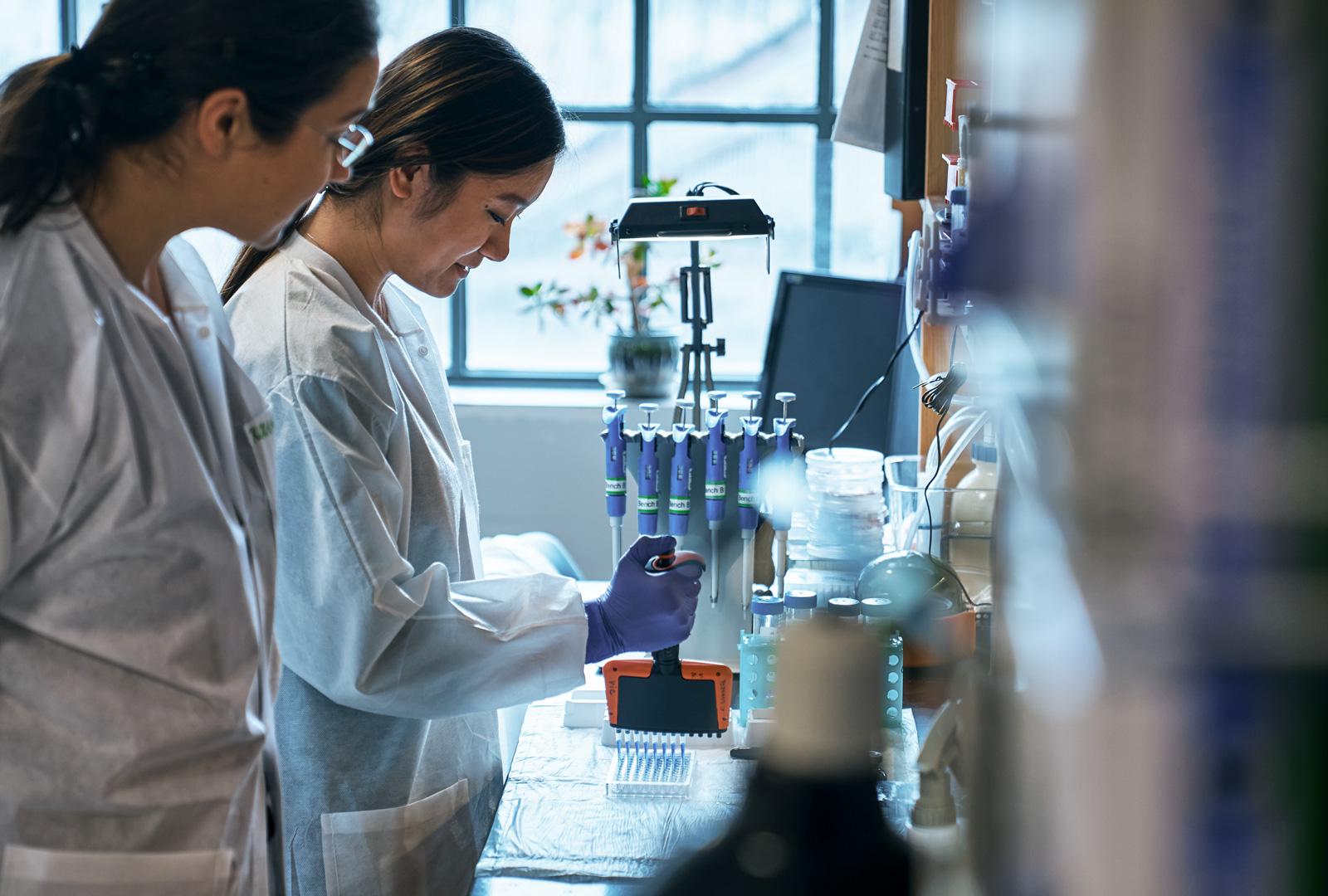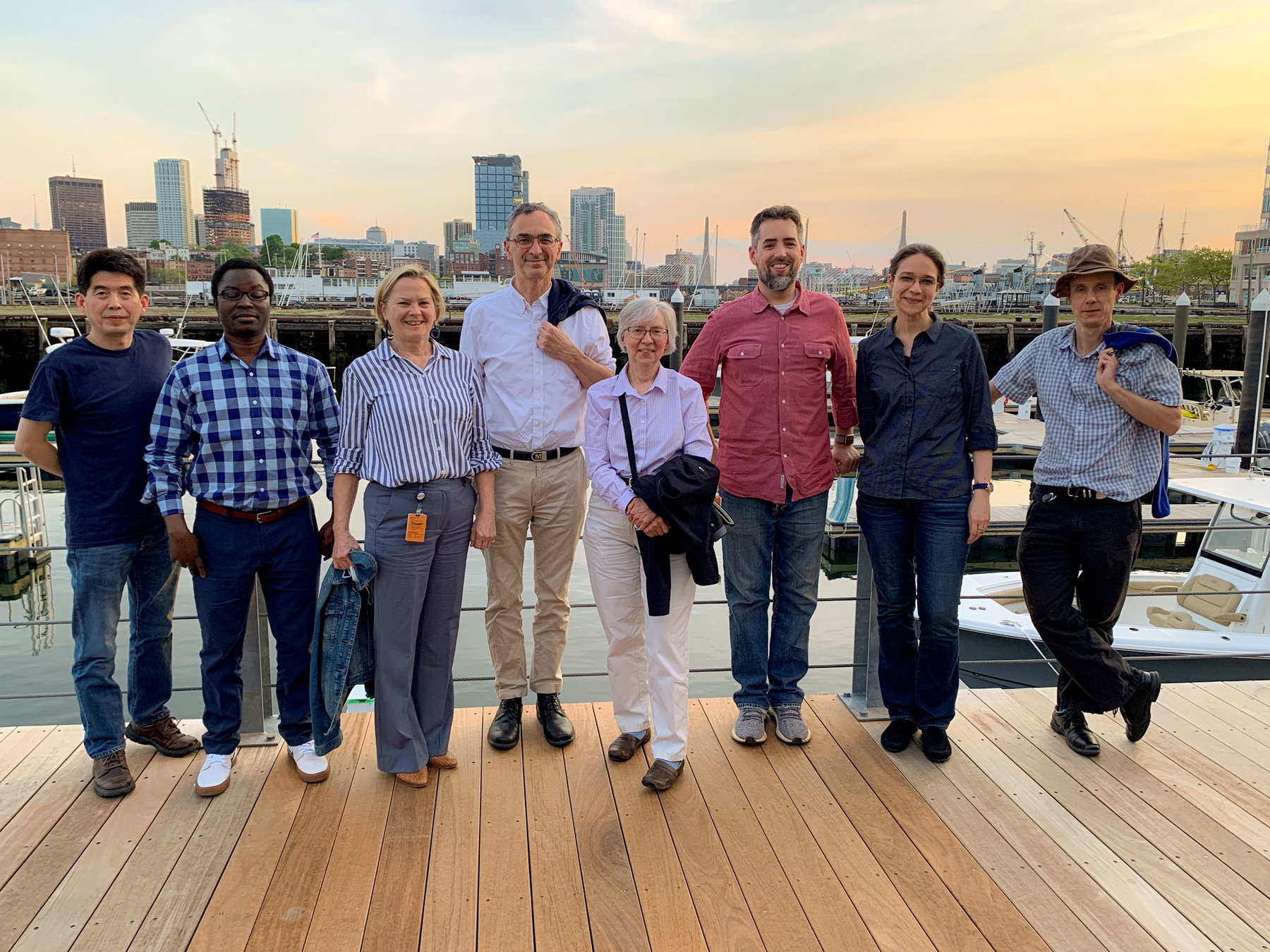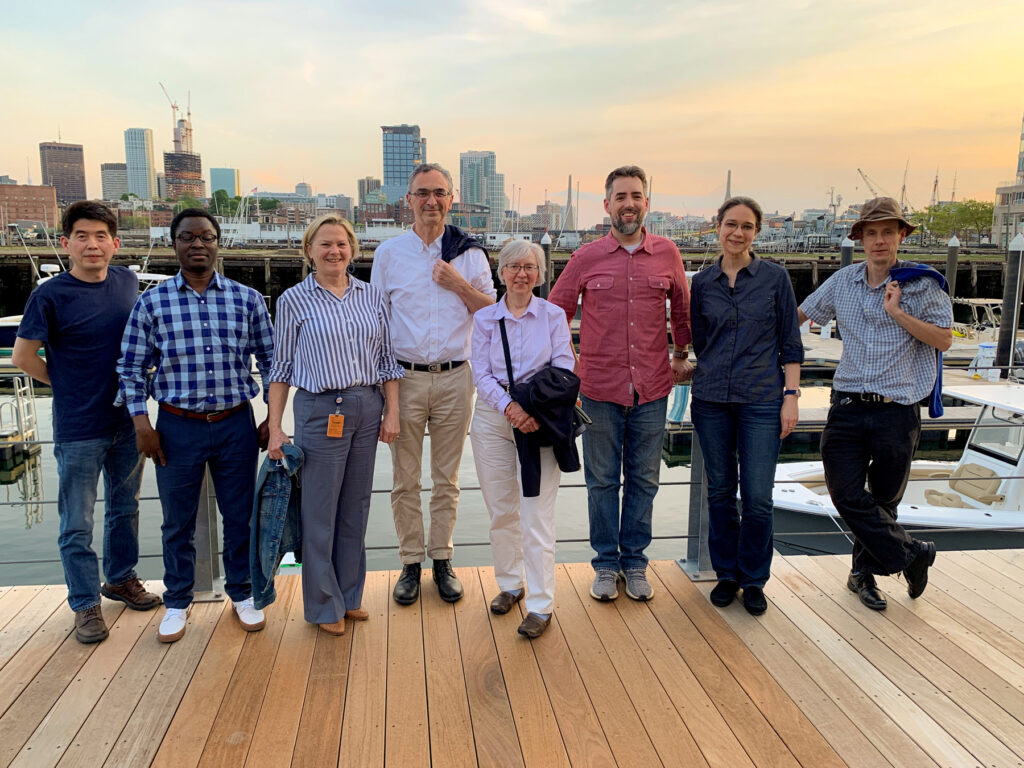Qixuan Eric Chen, is a student at Winchester High School and an intern at the Vaccine and Immunotherapy Center (VIC). He has written an illuminating piece entitled ‘Moving Mountains to Conquer ALS, on his personal connection to a mentor with ALS and highlights the ongoing research into this devastating disease at VIC.
Moving Mountains to Conquer ALS
Written By: Qixuan Eric Chen
Ruxandra Sîrbulescu, PhD and Mark Poznansky MD, PhD, along with their regenerative medicine team (Kento Kawai, PhD, Gina Jin, BSc, David Verrill BSc, Michael H. Chapin, BSc, Joshua M. Hess, BSc, Laura Valine, BSc) at Massachusetts General Hospital’s Vaccine and Immunotherapy Center (VIC) along with Katie Nicholson MD, Ghazaleh Sadri-Vakili PhD and James Berry MD, at the Healey Center and Department of Neurology at MGH are developing a new B cell-based regenerative therapies for the treatment of amyotrophic lateral sclerosis (ALS). But to understand why I am writing about this, I have to go back four years and up 5,269 treacherous feet above sea level to the top of Mount Katahdin, the highest peak in Maine and the north end of the Appalachian Trail.
In the summer of 2017, I had the honor of hiking with Rick Marks on the last leg of his “Epic Hike.” I am a Scout in Troop 507 Winchester, and Rick was one of our adult leaders. I have always looked up to the leaders in our troop, and Rick was certainly no exception. Not only was he a knowledgeable and skilled mentor for us Scouts, but he was also an exemplary role model who effortlessly lived the Scout Law and Scout Oath — a trustworthy, loyal, helpful, friendly, courteous, kind, obedient, cheerful, thrifty, brave, clean, and reverent leader who helped other people at every opportunity and kept himself physically strong, mentally strong, and morally straight.
If anyone had the courage to embark on such an “Epic Hike,” it would be Rick. So, on June 17, 2017, he did just that — 603 grueling miles of the Appalachian Trail from Massachusetts to Maine — accompanied periodically by his friends and family. The
northernmost summit, Mount Katahdin, was our final destination. This may already sound like a formidable challenge, but another obstacle stood in Rick’s way.
In October of 2016, Rick was diagnosed with ALS, a disease that impaired his speech, balance, and muscle function. Though its causes are yet to be fully resolved, ALS is a progressive neurodegenerative disease, meaning that it gradually affects the nervous system, and its symptoms worsen over time. As the disease progresses, motor neurons in the brain and spinal cord responsible for voluntary muscle movement degenerate and ultimately die, causing the person affected to lose the ability to initiate or control essential actions such as talking, standing, and walking. But Rick did not let that stop him. Shortly after his diagnosis, Rick planned his hike with the goal of raising awareness and funds for ALS research, and in a matter of months, began his trek on the hundreds of miles of strenuous terrain.
On his website (rickshikeforals.org), Rick wrote: “I don’t want one more family to have to go through what we are experiencing, and what so many others have before us. I want to do something to make a difference and to contribute to ending this horrific disease while I still can.” His fundamental goal: “to find a treatment or cure by 2020.” Although this milestone has not yet been realized, the Food and Drug Administration (FDA) has currently approved two drugs for ALS treatment. Riluzole is a neuroprotective drug that slows the progression of the disease by inhibiting the release of glutamate, a neurotransmitter, in the central nervous system. Edaravone, though its specific mechanisms are unknown, works to reduce oxidative stress and cell death. Both exhibit beneficial properties concerning patients’ lifespans and cell deterioration and provide symptom control. However, organizations are still aiming to creatively produce additional and different treatments to augment ALS therapy.
The teams at VIC and The Healey Center, are striving to develop a new approach. They seek to modulate and use components of the immune system to treat neurodegenerative diseases and unlock the inherent healing abilities of specific immune cells. Dr. Sîrbulescu studies the implications of immunotherapy using B lymphocytes (B cells) — known for their ability to secrete antibodies — to protect cells damaged by neurodegeneration. The team, together with an expert group of clinicians at MGH, also assesses comprehensive pictures of immune health in patients with slow and rapid progression ALS.
The research process for ALS treatments is infamously complex for its stages of clinical development. The team at VIC including Ann Sluder PhD, work closely with the FDA in the clinical testing of B cell immunotherapies. At VIC, these technologies have succeeded in the stages of initial research and development, preclinical efficacy, preclinical safety, and are extending their progress in and past initial studies in human patients. The team’s work continues to produce promising results for the treatment of ALS and epitomizes Rick’s efforts to bring positive change to something more significant than the individual.
On April 11, 2018, 18 months after his diagnosis, Rick lost his battle with ALS, but his legacy and his hike live on. He will always be remembered as an inimitable father, leader, and mentor. Reminiscing, I am even more bewildered at Rick’s sheer steadfastness and bravery in taking on such an arduous endeavor. Mount Katahdin may have been the end of his hike, but Rick’s commitment has inspired new beginnings for thousands of people across the nation. Furthermore, Rick more than tripled his original fundraising goal of $50,000, raising over $160,000 for ALS research. This story clearly draws attention to this devastating disease, the need for new safe and effective therapies
and the value of intense team work by a diverse group of scientists and physicians in developing innovative approaches to treating this disease.
Modern medicine has not yet fulfilled Rick’s goal of a cure, but that does not mean that his efforts and those of scientists are futile. It is the people who have dedicated their lives to research — people like Dr. Sîrbulescu and her team, those at VIC and the Healey Center at MGH, along with countless others — who continue to perpetuate Rick’s unwavering mindset and will undoubtedly make invaluable progress for the betterment of lives across the globe.





